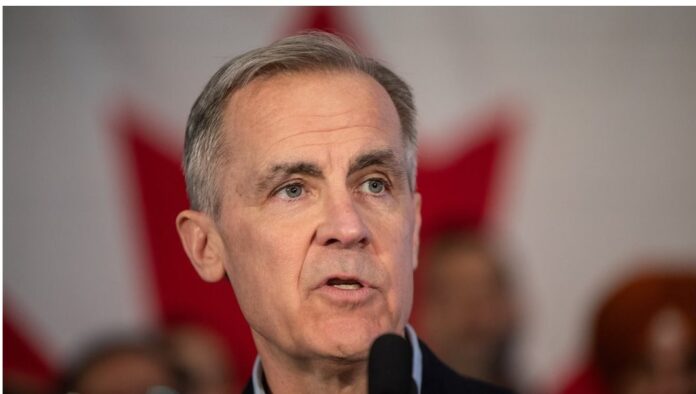Mark Carney’s recent election as leader of the Liberal Party of Canada on March 9, 2025, positions him to succeed Justin Trudeau as the country’s next Prime Minister.
Carney’s extensive background in international finance, including his tenure as Governor of both the Bank of Canada and the Bank of England, brings a unique perspective to Canada’s leadership. His appointment is anticipated to significantly influence Canada-U.S. relations, potentially ushering in a new era of economic and diplomatic collaboration between the neighboring nations.
Economic Collaboration and Policy Alignment
Carney’s deep understanding of global financial systems and monetary policy is expected to strengthen economic ties between Canada and the United States. His experience suggests a propensity for fostering stability and growth, which could lead to more synchronized fiscal and monetary policies between the two countries.
This alignment may facilitate smoother trade negotiations and investment flows, benefiting industries on both sides of the border. Additionally, Carney’s commitment to addressing climate change aligns with the current U.S. administration’s priorities, potentially leading to joint initiatives promoting sustainable economic practices.
Trade Relations and Regulatory Cooperation
Under Carney’s leadership, Canada may pursue more integrated trade policies with the United States. His familiarity with international regulatory frameworks could pave the way for harmonized standards, reducing barriers for businesses operating in both markets. This harmonization might particularly impact sectors such as automotive, agriculture, and technology, where cross-border collaboration is essential. Enhanced regulatory cooperation could also lead to joint efforts in cybersecurity and digital trade, addressing emerging challenges in the global economy.
Diplomatic Dynamics and Geopolitical Strategy
Carney’s international experience extends beyond economics; his tenure in the United Kingdom during Brexit negotiations gave him insights into geopolitical strategy. As Prime Minister, he may leverage this experience to navigate complex diplomatic landscapes, strengthening Canada’s position on the global stage. A robust Canada-U.S. partnership under Carney’s leadership could contribute to a unified approach to addressing global security threats, international trade disputes, and environmental concerns. This collaboration would not only enhance bilateral relations but also reinforce the influence of North America in global affairs.
Potential Challenges and Considerations
While Carney’s appointment promises enhanced Canada-U.S. relations, potential challenges remain. Differences in domestic priorities, political pressures, and public opinion could influence the extent of cooperation. Additionally, navigating the complexities of U.S. domestic politics will require diplomatic finesse to ensure bilateral initiatives receive support from various stakeholders. Carney’s ability to balance Canada’s national interests with the dynamics of U.S. policy will be crucial in maintaining a productive relationship.
Mark Carney’s ascension to Canada’s Prime Ministership is poised to positively impact Canada-U.S. relations. His extensive experience in international finance and governance equips him with the tools to foster deeper economic integration and diplomatic collaboration. As both nations face evolving global challenges, Carney’s leadership could usher in a period of strengthened partnership, benefiting Canada and the United States and contributing to stability and progress on the international stage.

